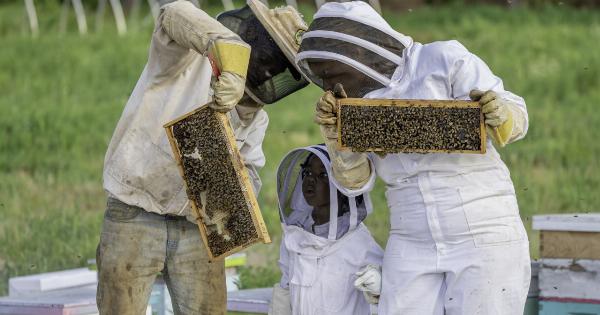As parents, one of the most daunting tasks we face is discussing sex with our children. It’s a sensitive and delicate subject, but an essential one that requires open and honest dialogue.
Providing accurate information and promoting a healthy understanding of sexuality will help our children navigate this aspect of their lives confidently and responsibly. In this article, we will provide you with guidance on how to approach the sex talk with your kids.
1. Start Early
It’s crucial to start talking about sex early on, so your child grows up with a healthy understanding of their bodies and relationships. Begin with age-appropriate conversations about body parts, personal boundaries, and consent.
Use proper anatomical terms and assure your child that it is normal to discuss these topics with you.
2. Create a Safe Environment
Make sure your child feels safe and comfortable discussing sex with you. Create an environment where they won’t feel judged or embarrassed.
Assure them that they can come to you with any questions or concerns they may have, and you will listen without judgment.
3. Use Everyday Situations as Teaching Moments
Sex education doesn’t have to be a formal sit-down conversation. You can use everyday situations as teaching opportunities. For example, when watching a movie or reading a book together, discuss the relationships and behaviors portrayed.
Encourage critical thinking and open-ended questions.
4. Be Honest and Age-Appropriate
When discussing sex, be truthful, but also consider your child’s age and level of understanding. Provide information that is appropriate to their developmental stage, ensuring you don’t overwhelm them with details they may not be ready for.
Answer their questions honestly and authentically.
5. Explain the Purpose of Sex
Teach your children that sex is a natural and normal part of human existence, emphasizing that it serves multiple purposes beyond reproduction, such as emotional connection and pleasure.
Help them understand that healthy relationships involve love, trust, and respect.
6. Address Consent
Teach your children about the importance of consent from an early age. Explain that they have the right to say no to any form of physical contact that makes them uncomfortable, and that others should respect their boundaries.
Reinforce the message that consent must always be enthusiastic and ongoing.
7. Talk About Safe Sex and Protection
As your children grow older, discuss safe sex practices and the importance of protecting themselves from sexually transmitted infections (STIs) and unintended pregnancies.
Educate them about contraception methods and encourage responsible decision-making.
8. Discuss Online Safety and Pornography
In the digital age, it’s essential to discuss online safety and pornography with your children.
Teach them about appropriate online behavior, the potential dangers of sharing sensitive information, and the importance of consent even in online interactions. Discuss the unrealistic portrayal of sex in pornography and emphasize the importance of distinguishing fantasy from reality.
9. Address Peer Pressure
Discuss the issue of peer pressure and its potential effects on sexual decision-making. Teach your children how to confidently say no to unwanted advances and encourage them to seek support from trusted adults if they feel uncomfortable or pressured.
10. Keep the Conversation Open and Ongoing
The sex talk should be an ongoing dialogue, not a one-time event. Encourage your children to ask questions at any time, even after the initial conversation.
Stay updated on new research, advancements in sexual health, and changes in society’s attitudes towards sex to ensure your knowledge remains current.
Approaching the sex talk with your kids can be challenging, but it’s a critical aspect of their development.
By starting early, creating a safe environment, being honest and age-appropriate, discussing important topics like consent and safe sex, and keeping the conversation ongoing, you can help your children develop a healthy understanding of sexuality. Remember, it’s never too late to start the conversation and promote a positive and responsible approach towards sex.


























